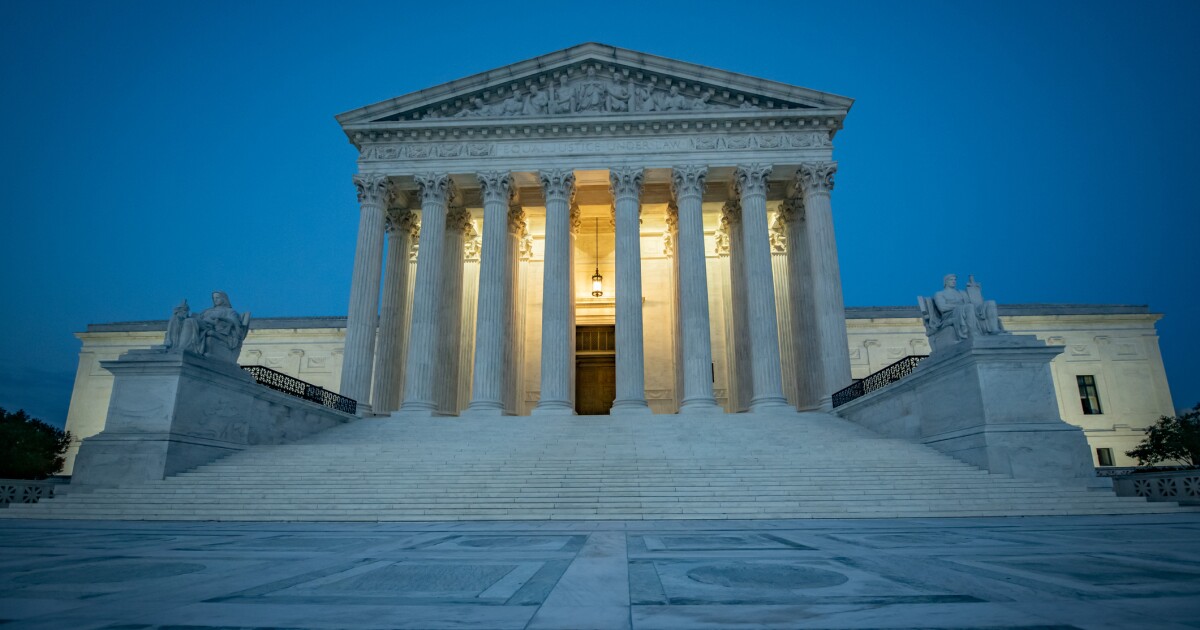

The Federal Communications Commission’s attempt to reinstate the internet policy known as net neutrality faces a major stumbling block in the form of Supreme Court scrutiny, according to some of its critics.
Under Chairwoman Jessica Rosenworcel, the FCC released a new proposal on Thursday that would recategorize internet service providers under Title II of the Communications Act. This change would place them under additional regulations to ensure the ISPs do not discriminate or throttle content from various websites.
HOW WILL A GOVERNMENT SHUTDOWN AFFECT NATIONAL PARKS?
One Republican FCC commissioner and a pair of former Obama solicitor generals, though, argue that the Supreme Court will strike the rules down if the commission follows through with them.
The FCC pushing a return to Obama-era net neutrality rules would present a “massive waste of resources for the government, industry, and the public, as well as the lost opportunity to pursue more pressing policy goals such as deploying robust broadband service to all Americans,” argued former Obama Solicitor Generals Donald Verrilli and Ian Gershengorn in a white paper published last week.
The white paper concluded that the current 6-3 conservative-controlled Supreme Court would strike down net neutrality rules. The two lawyers argue that the rules are untenable based on the 2021 West Virginia v. EPA ruling, in which the Supreme Court ruled that the Environmental Protection Agency had extended its authority too far when it tried to regulate emissions and that the regulations fell underneath the “major questions” doctrine, a legal principle stating that Congress does not delegate issues of major economic or political significance to federal agencies. The FCC’s push to reclassify ISPs would also fall under the “major questions” doctrine, the white paper argues.
Verrilli and Gershengorn’s arguments gained the attention of FCC Commissioner Brendan Carr, a Republican who opposes the agency using its power to reclassify ISPs.
“Rather than heading down the doomed and damaging path toward Title II, the FCC should focus on advancing the many important policies over which the Commission does have authority,” Carr argued in a Wednesday statement.
At a June reconfirmation hearing, Carr said that the FCC lacks congressional authority to implement net neutrality.
Net neutrality advocates noted that the Verrilli-Gershengorn white paper wasbacked by USTelecom and the Internet and Television Association, two telecommunications industry lobbying groups. The two lobbying groups also assisted in funding a campaign to paint ex-FCC nominee and public advocate Gigi Sohn negatively over her support of net neutrality.
Advocates for the rule also noted that the FCC handled this matter quite a bit in the past. “Net Neutrality has been talked about and ruled upon by the FCC since 2010,” Stephanie Joyce, the senior vice president of the Computer & Communications Industry Association, told the Washington Examiner. For example, the D.C. Circuit Court upheld the FCC’s net neutrality rules in 2016. This decision was upheld by the Supreme Court in 2018 despite Trump-appointed FCC Chairman Ajit Pai reversing the Obama-era rules in 2017.
Joyce also noted the 2005 Supreme Court decision National Cable & Telecommunications Ass’n v. Brand X Internet Services, which authorized the FCC to make classification decisions on a case-by-case decision and found that the FCC was justified in classifying Digital Subscriber Lines and cable modems differently.
Harold Feld, senior vice president of the left-leaning advocacy group Public Knowledge, argued in a blog post that while Justice Brett Kavanaugh appears set in his opposition to net neutrality based on past rulings, it is not as clear that his fellow conservatives will concur with him.
CLICK HERE TO READ MORE FROM THE WASHINGTON EXAMINER
He pointed to a significant difference of opinion between Chief Justice John Roberts and Kavanaugh regarding the major questions doctrine. Roberts wrote in the EPA v. West Virginia ruling that the application of “major question” should only be involved in “extraordinary cases” in which agencies express “extraordinary power,” while Kavanaugh seemed to imply that the major questions doctrine could come up every time an agency applies an established rule for the first time.
The FCC’s final rule won’t pass until the end of 2024 at the earliest, according to FCC alums. The rule would then have to be challenged in court and work its way up through the district and appeals process before the Supreme Court could even consider hearing the case. The process could take several years.





